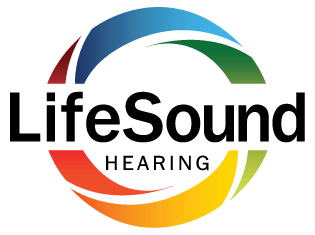
The underlying basis of noise-induced hearing loss might seem well-understood. After all, the name itself indicates a fairly direct cause-and-effect relationship. The common understanding is simply that loud sounds damage the hearing mechanisms in the ear, leading to long-term and permanent hearing loss.
And while that’s relevant, the mechanisms behind that cause haven’t always been so well understood. That’s changing, thanks to new research into the role of zinc management after exposure to loud noises. This research indicates that there’s a significant link between zinc and hearing loss.
What is zinc? And how does it impact hearing impairment?
Zinc is a common mineral. Most people have plenty of zinc in their bodies, carrying out distinct and essential functions. Zinc helps your brain interpret chemical signals and is connected to immune system functions. With a few exceptions, the vast majority of individuals get plenty of zinc from their food every day.
At first glance, it may be challenging to determine the relationship between hearing loss and zinc. After all, it’s not immediately obvious what role zinc plays in your hearing. However, a novel experiment has shed some light on what’s happening.
Researchers exposed mice to loud sounds and conducted a few analyses afterward. When exposed to loud noises, the same thing happens to mice as happens to humans: the delicate parts of the ear are damaged. For humans, sound will initially become impermanently muffled. As a person is continually exposed to loud noise, this damage will become more extreme and lasting. In both mice and humans, the body isn’t capable of healing or repairing this damage.
Researchers also took blood samples from the mice and observed some interesting results in terms of free-floating zinc.
Is hearing loss caused or helped by zinc?
Scientists now have a greater picture of how the symptoms of noise-induced hearing loss occur because of this research. Normally, when zinc is in the body, it’s bound molecularly. During the experiment, researchers observed that zinc became free-floating after the ears were exposed to loud noises and sound-related stresses. Zinc most likely behaves the same way in humans.
This zinc de-regulation winds up causing cellular damage to the inner ear, specifically to the parts of the inner ear responsible for clear hearing. This is the mechanism that scientists now think leads to the kind of damage that causes noise-related hearing loss.
How to manage hearing loss
Over time, this kind of understanding may help scientists prevent noise-related hearing loss from ever occurring, even in those individuals who are frequently subjected to loud noises. However, it might be some time before those advancements become a viable reality. But there are still other ways to protect your ears.
So, how can you safeguard yourself from noise-related hearing loss?
There are several strategies you can utilize to safeguard your ears:
- Consistently check in with your hearing specialist: Getting a hearing test (and regularly checking in with us) can help detect damage early.
- Limit your exposure to loud noises: This clearly includes noises such as jet engines, concerts, or sporting events. But there are some more commonplace noises that can cause hearing loss that might be surprising, including things like a leaf blower, traffic, or individuals talking loudly in a busy office.
- Use ear protection: Ear muffs and ear plugs can help your ears cope with loud settings that you can’t, or don’t want to stay away from. If you go to that concert, for instance, wear a pair of ear plugs to ensure you can still hear, but that your ears don’t become permanently damaged as a result.
Understand the causes, protect your ears
Can you cure noise-related hearing loss? Regrettably not. Though you can successfully treat this form of hearing loss and any related tinnitus, it has no cure. Strategies created to keep your hearing safe will be more successful the better you understand the mechanisms behind hearing loss.
This research is likely just the first step in a longer process. But we seem to be getting closer to understanding. On a personal level, it’s essential to take steps to safeguard your hearing and check in with your hearing specialist.
[blogcta]
